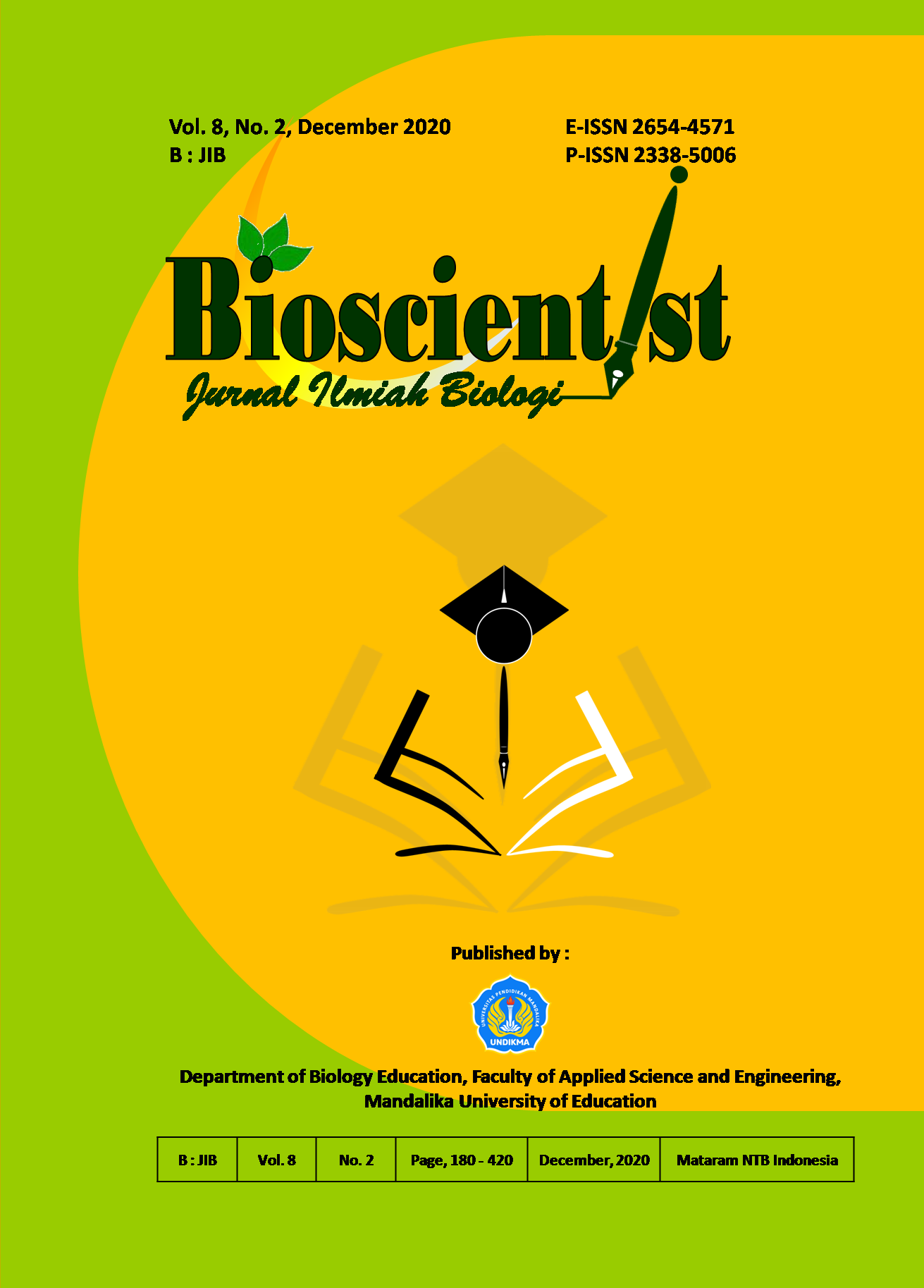Pengaruh Metode Role Playing terhadap Hasil Belajar Kognitif Ditinjau dari Aktivitas Belajar Siswa
DOI:
https://doi.org/10.33394/bioscientist.v8i2.3094Keywords:
Role Playing Method, Cognitive Learning Outcomes, Learning Activities.Abstract
The method of role playing in learning is a teaching and learning process in which students themselves are mentally active, building their knowledge, which is based on the cognitive structure they have. The teacher has a more role as a facilitator and mediator of learning. This study aims to determine the effect of role playing methods on cognitive learning outcomes in terms of student learning activities. The research method used is a quasi-experimental method. The research design used a "post-test only control group design" which involved two classes, namely the experimental class and the control class. The population in this study were all students of class X MIA MA Darul Aminin NW Aikmual, Central Lombok Regency. While the research sample was 39 students of class X MIA at the MA. Student learning outcomes were measured using a test in the form of multiple choice questions, and student learning activities were obtained using a questionnaire. Based on the results of the research that has been done, it can be concluded that the role playing method has an effect on student cognitive learning outcomes, because the significance value is 0.046 <0.05. The student learning activity factor for the cognitive domain obtained a significance value of 0.030 <0.05. The data shows that, student learning activities affect student cognitive learning outcomes. The interaction of the role palying method with student learning activities for the cognitive domain obtained a significance value of 0.227 <0.05, so this data shows that there is an interaction between the role playing method and student learning activities on student cognitive learning outcomes.References
Djamarah, S. B., & Zain, A. (2010). Strategi Belajar Mengajar. Jakarta: PT Rineka Cipta.
Irham, M. (2013). Psikologi Pendidikan: Teori dan Aplikasi dalam Proses Pembelajaran. Yogyakarta: Ar-Ruzz Media.
Jihad, A., & Haris, A. (2012). Evaluasi Pembelajaran. Yogyakarta: Multi Presindo.
Moses, M. (2012). Analisis Pengaruh Pendidikan, Pelatihan, dan Pengalaman Kerja terhadap Produktivitas Kerja Pegawai Dinas Pertambangan dan Energi Provinsi Papua. Media Riset Bisnis & Manajemen, 12(1), 18-36.
Muhibbin, S. (2015). Psikologi Belajar. Jakarta: Raja Grafindo Persada.
Mulyono. (2012). Strategi Pembelajaran (Menuju Efektivitas Pembelajaran di Abad Global). Malang: UIN Maliki Press.
Rusman. (2013). Model-model Pembelajaran Mengembangkan Profesionalisme Guru. Jakarta: PT Raja Grafindo Persada.
Santoso, A. (2010). Studi Deskriptif Effect Size Penelitian-penelitian di Fakultas Psikologi Universitas Sanata Dharma. Jurnal Penelitian, 14(1), 1-17.
Sudjana, N. (2011). Penilaian Hasil Proses Belajar Mengajar. Bandung: PT Remaja Rosdakarya.
Suprijono, A. (2013). Cooperative Learning. Surabaya: Pustaka Belajar.
Susanto, A. (2015). Teori Belajar dan Pembelajaran di Sekolah Dasar. Jakarta: Prenada Media.













